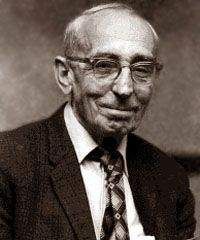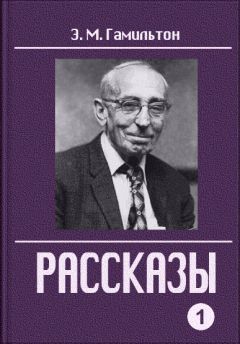Пользователь - o 3b3e7475144cf77c
wines, and enjoyed the love of a beautiful and fashionable wife. In short, he had had the most
delightful sort of life that the average man could imagine.
But meantime the people of Germany had been living an utterly different life; doing hard and
monotonous labor for long hours at low wages; finding the cost of necessities creeping upward
and insecurity increasing, so that no man could be sure that he and his family were going to
have their next day's bread. The causes of this state of affairs were complex and hopelessly
obscure to the average man, but there was a group which undertook to make them simple and
plain to the dullest. During the aforementioned twenty months the customs official's son from
Austria, Adi Schicklgruber, had been skipping about even more than Lanny Budd, using the
same facilities of railroad trains and motor-cars and airplanes. But he hadn't been seeking
pleasure; he had been living the life of an ascetic, vegetarian, and teetotaler, devoting his
fanatical energies to the task of convincing the German masses that their troubles were due to
the Versailles Diktat, to the envious foreigners who were strangling the Fatherland, to the
filthy and degraded Jews, and to their allies the international bankers and international Reds.
Say the very simplest and most obvious things, say them as often as possible, and put into
the saying all the screaming passion which one human voice can carry—that was Adolf Hitler's
technique. He had been applying it for thirteen years, ever since the accursed treaty had been
signed, and now he was at the climax of his efforts. He and his lieutenants were holding
hundreds of meetings every night, all over Germany, and it was like one meeting; the same
speech, whether it was a newspaper print or cartoon or signboard or phonograph record. No
matter whether it was true or not—for Adi meant literally his maxim that the bigger the
falsehood, the easier to get it believed; people would say you wouldn't dare make up a thing
like that. Imagine the worst possible about your enemies and then swear that you knew it, you
had seen it, it was God's truth and you were ready to stake your life upon it—shout this, bellow
this, over and over, day after day, night after night. If one person states it, it is nonsense, but if
ten thousand join in it becomes an indictment, and when ten million join in it becomes
history. The Jews кill Christian children and use their blood as a part of their religious ritual!
You refuse to believe it? But it is a well-known fact; it is called "ritual murder." The Jews are in
a conspiracy to destroy Christian civilization and rule the whole world. It has all been
completely exposed in the Protocols of the Elders of Zion; the party has printed these, the
Führer has guaranteed their authenticity, the great American millionaire Henry Ford has
circulated them all over America. Everybody there knows that the charges are true, the whole
world knows it—save only the Jew-lovers, the Jew-kissers, the filthy Jew-hirelings. Nieder mit
den Juden!
XI
So here was another huge mass meeting, such crowds that you could hardly get in, and two
rich Americans having to climb to distant seats in a gallery. But it was all right, for there were
loudspeakers, a wonderful device whereby one small figure on a platform could have the voice
of a score of giants, while a dissenter became a pigmy, uttering a squeak like a mouse. The
radio was a still more marvelous invention; that feeble little "crystal set" with earphones which
Robbie Budd had brought to Bienvenu ten years ago had become the most dominating of
psychological forces, whereby one man could indoctrinate a hundred million. Learned
technicians of the mind had evolved methods of awakening curiosity, so that the millions
would listen; and no matter how much anyone disagreed, he was powerless to answer back.
The dream of every dictator was to get exclusive control of that colossal instrument, so that
never again in all history would it be possible to answer back. Then what you said would
become the truth and the only truth—no matter how false it might have been previously! He
who could get and hold the radio became God.
Once more Lanny observed the application of the art of moving the mass mind. Adolf Hitler
taught that the masses did not think with their brains but with their blood; that is to say, they
did not reason but were driven by instincts. The most basic instinct was the desire to survive
and the fear of not surviving; therefore Adolf Hitler told them that their enemies desired to
destroy them and that he alone could and would save them; he told them that they were the
Herrenvolk, the master race, designed by nature to survive and to rule all other races of the
earth. The second basic instinct was hunger, and they had suffered it, and he promised them
that under his leadership Germany would break into the storehouses of the world's plenty;
the Fatherland would have Lebensraum, the space in which to expand and grow. The third
basic instinct is sex, and he told them that they were destined to populate the earth, and that
every pure-blooded Aryan Mädchen was the predestined mother of blond heroes; that was
what she was created for, and no permission was needed for her to begin; a wise Fatherland
would provide for her care and give all honor to her and her offspring.
All these instincts added up into pride and victory over the foes of Germany. "Sieg Heil!"
they shouted; and the party had invented an elaborate ritual to embody these concepts and to
thrill the dullest soul. At the futile Beerhall Putsch which Lanny had witnessed in Munich
there had been carried banners, and these banners had been riddled with bullets and stained
with the blood of martyrs; that made them holy, and Adolf Hitler had carried them all over
Germany, and upon public platforms had performed the ceremony of touching the new
banners with the old; that made all the Nazi banners holy, and worthy of being stained with
the blood of martyrs. So now when they were carried all hearts beat high, and all good party
members longed for a chance to become martyrs and have a new Horst Wessel Lied sung
about them. Shrill trumpets proclaimed the entry of these banners, drums beat and fifes
shrilled and a bodyguard of heroes marched into the hall with faces solemn and grim.
To the speakers' platform ascended large, heavy Gregor Strasser; not humbled and
browbeaten as Lanny had last seen him, but bursting with assurance of power. He was one
of the original party leaders, and had helped Adolf to keep alive in the early days. He had
believed in the early program with all its promises for the overthrow of the rich and the setting
up of the disinherited. Did he believe in them still, when he knew that the Führer no longer
meant them? You could never have guessed it from listening to his speech, for he seemed to have
but one rule: to think of everything that ten thousand Wurttembergers could possibly want,
and promise it to them, to be delivered on the day when they would elect the candidates of the
N.S.D.A.P.
Lanny said: "That's surely the way to get out the vote!" Irma, who didn't understand what
the orator was promising, and had to judge by gestures and tones, remarked: "It is surprising
how much like Uncle Jesse he sounds."
"Don't let either of them hear that!" chuckled the husband.
XII
It was a political campaign of frenzied hate, close to civil war. Troops of armed men
marched, glaring at other troops when they passed, and ready to fly at the others' throats; in the
working class districts they did so, and bystanders had to flee for their lives. The conservatives,
who called themselves Democrats and Nationalists, had their Stahlhelm and their Kampfring,
the Nazis had their S.S.'s and S.A.'s, the Sozis had their Reichsbanner, and the Communists
their Rotfront, although the last named were forbidden to wear uniforms. The posters and
cartoons, the flags and banners, all had symbols and slogans expressive of hatred of other people,
whether Germans of the wrong class, or Russians, French, Czechs, Poles, or Jews. Impossible to
understand so many kinds of hatreds or the reasons for them. Irma said: "It's horrible, Lanny.
Let's not have any more to do with it."
She had met charming people in Berlin, and now Johannes gave her a reception, and they all
came; when they found that she didn't like politics they said they didn't blame her, and talked
about the music festivals, the art exhibitions, the coming yacht regattas. The Jewish money-lord
tried to keep friendly with everybody, and he knew that many who would not ordinarily darken
his door were willing to come when a celebrated American heiress was his guest. According to his
custom, he did not try to hide this, but on the contrary made a point of mentioning it and
thanking her. She knew that this Jewish family had risen in the world with the help of the
Budds; but so long as they showed a proper gratitude and didn't develop a case of "swelled
head," it was all right for the help to continue.
German big business men came, and their wives, still bigger as a rule. German aristocrats
came, tall, stiff gentlemen wearing monocles, and their Damen who seemed built for the stage
of Bayreuth. All had long titles, and left off none of the vons and zus; Irma had trouble in telling
Herr vons from Herr Barons, Herr Grafen from Erlauchts, and Erlauchts from Durchlauchts.
Graf Stubendorf came, reported on affairs at home, and cordially renewed his invitation for
next Christmas, or for the shooting season earlier. The new Chancellor came; tall and thin-
faced, the smartest of diplomats and most elegant of Catholic aristocrats, he lived entangled in
a net of intrigue of his own weaving. A son of the Russian ghetto might have been
overwhelmed by the honor of such a presence, but Johannes took it as the payment of a debt.
The gentlemen of the fashionable Herren Klub hadn't been able to raise enough money to
save their party, so the Chancellor had had to come to the Jew for help.
Irma found him charming, and told her husband, who remarked: "There is no greater rascal
in all Europe. Franz von Papen was put out of the United States before we entered the war
because he was financing explosions in munitions plants."
"Oh, darling!" she exclaimed. "You say such horrid things! You can't really know that!"
Said the young Pink: "He didn't have sense enough to burn his check-stubs, and the British
captured his ship on the way home and published all the data."
13
Even to the Edge of Doom
I
THE cruise of the Bessie Budd began. Not a long cruise, never more than a week at a time in
these disturbed days. They stopped to fish and swim, and they sent out upon the North Sea
breezes a great deal of romantic and delightful music. The seamen and the fishermen who
glided by in the night must have been moved to wonder, and perhaps some young Heine
among them took flight upon the wings of imagination. Far on the Scottish rock-coast, where
the little gray castle towers above the raging sea, there, at the high-arched window, stands a
beautiful frail woman, tender-pellucid and marble-pale, and she plays the harp and sings, and
the wind sweeps through her long tresses and carries her dark song over the wide storming
sea.
Resting from such flights of fancy the solicitous Lanny Budd had quiet talks with his host,
hoping by gentle and tactful intervention to lessen the strain of that family conflict which had
been revealed to him. Johannes explained, in much the same words that Robbie Budd had
used when Lanny was a small boy, that the business man did not think merely of the money
he was making or might make; he acquired responsibilities to thousands of investors, not all of
them greedy idlers, but many aged persons, widows, and orphans having no means of support
but their shares of stock; also to workingmen whose families starved unless the weekly pay
envelopes were filled. It was a libel upon business administrators to suppose that they had no
sense of duties owed to other people, even though most of these people were strangers.
"Moreover," said Johannes, "when a man has spent his life learning to pursue a certain kind
of activity, it is no easy matter to persuade him to drop it at the height of his powers.
Difficulties, yes; but he has expected them, and takes them as a challenge, he enjoys coping
with them and showing that he can master them. To give up and run away from them is an
act of cowardice which would undermine his moral foundations; he would have no use for
himself thereafter, but would spend his time brooding, like an admiral who veered about and
deserted his fleet.
"My children have their own moral code," continued the money master, "and they have the
task of convincing me that it applies to my case. They wish to build a new and better world,
and I would be glad if they could succeed, and if I saw any hope of success I would join
them. I ask for their plans, and they offer me vague dreams, in which as a man of affairs I see
no practicality. It is like the end of Das Rheingold: there is Valhalla, very beautiful, but only a
rainbow bridge on which to get to it, and while the gods may be able to walk on a rainbow,
my investors and working people cannot. My children assure me that a firmer bridge will be
constructed, and when I ask for the names of the engineers, they offer me party leaders and
propagandists, speechmakers who cannot even agree among themselves; if it were not for
what they call the capitalist police they would fall to fighting among themselves and we
should have civil war instead of Utopia. How can my two boys expect me to agree with them
until they have at least managed to agree between themselves?"
Lanny was sad to have no answer to this question. He had already put it to his sister, and she
could say only that she and her husband were right, while Freddi and Rahel were wrong. No




